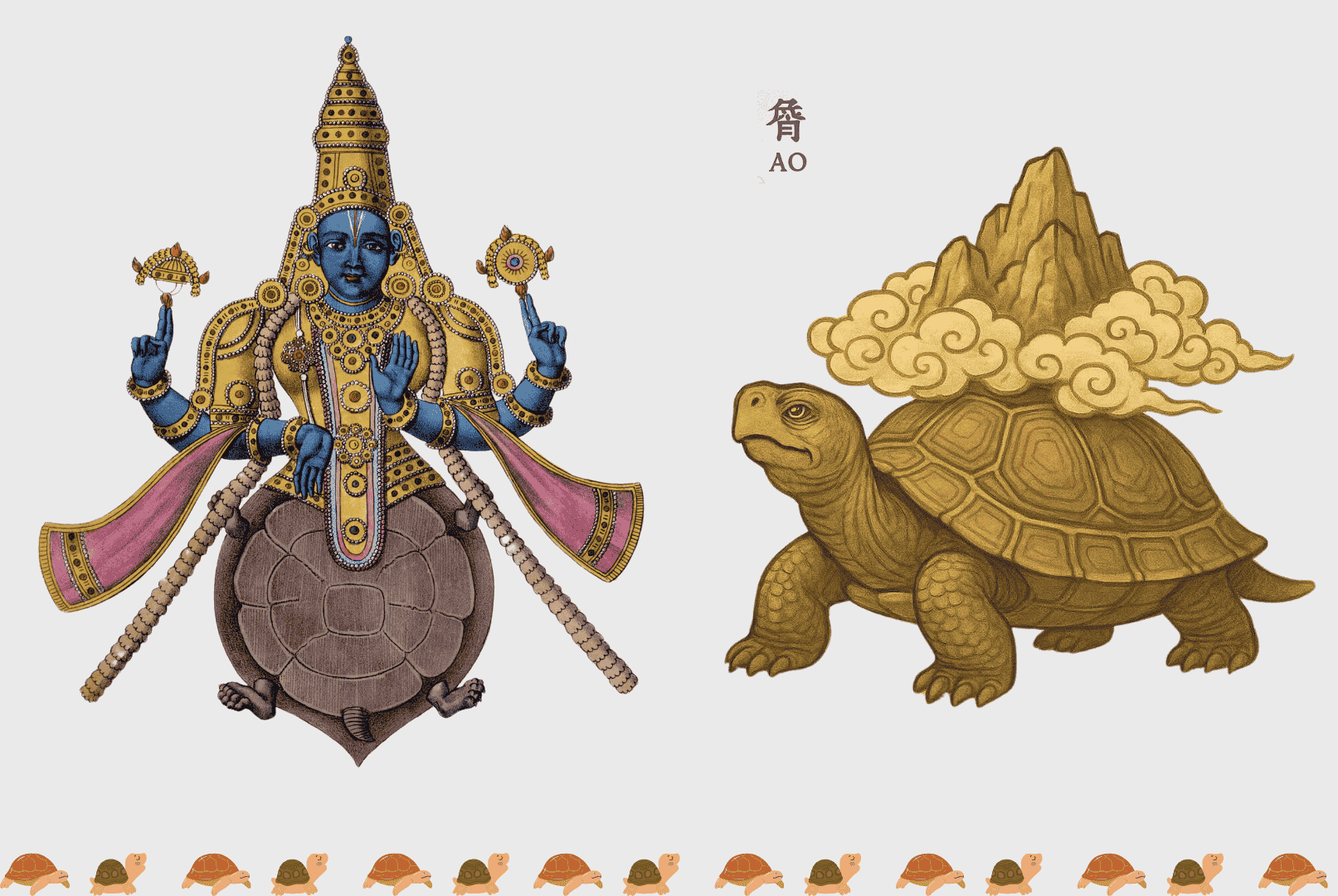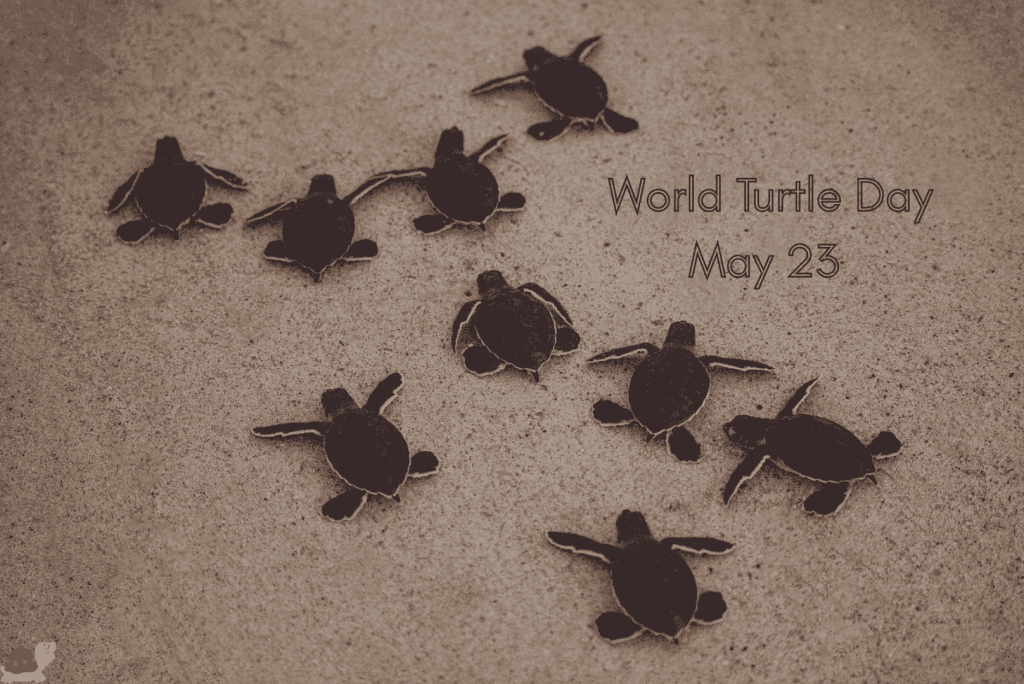From world-bearing gods to pop culture icons, turtles in human culture have symbolized endurance, wisdom, and cosmic power across civilizations. Here’s how their story spans 230 million years.
Turtles are more than slow moving reptiles. Across thousands of years, turtles in human culture have carried deep symbolic meaning. From ancient myths to animated movies, these creatures have left a mark on how humans tell stories, teach values, and understand the world.
Turtles in Ancient Civilizations
Turtles have appeared in the oldest stories ever told. In Hindu mythology, the god Vishnu took the form of a turtle, Kurma, to hold the world during creation. In Chinese legends, a giant turtle named Ao helped support the sky after it was damaged.
Many Native American tribes refer to North America as “Turtle Island,” a name based on creation stories where Earth is formed on the back of a giant turtle. In African and Caribbean folklore, tortoises often appear as clever tricksters, using their wit to outsmart stronger animals.
Even in ancient Egypt, turtle amulets were buried with the dead for protection and rebirth. In Greek myths, tortoises represented fertility and patience. These themes appear again in Aesop’s fable, The Tortoise and the Hare, teaching that “slow and steady wins the race.”

How Long Have Turtles Been Around?
Turtles are evolutionary survivors. They first appeared over 220 million years ago, even before the dinosaurs fully evolved. They’ve survived multiple mass extinction events, including the one that wiped out the dinosaurs.
What makes turtles unique isn’t just their shell, it’s their lifespan. Many sea turtles live up to 70 years, and some land tortoises can live more than 150 years. The world’s oldest known land tortoise, Jonathan, is nearly 190 years old.
Turtles in Modern Culture and Media
Turtles remain strong in pop culture. The Teenage Mutant Ninja Turtles, which started as a comic in 1984, became one of the most successful franchises in the world. In Finding Nemo, the sea turtle Crush captured hearts with his laid-back wisdom.
Books like Franklin the Turtle and Yertle the Turtle by Dr. Seuss bring turtle characters into everyday lessons for children. These stories build on the turtle’s long-standing image as a symbol of resilience, humility, and leadership.

May 23: World Turtle Day
Every year on May 23, the world celebrates World Turtle Day to raise awareness about turtle and tortoise conservation. Started by American Tortoise Rescue in 2000, the day highlights the need to protect these ancient reptiles from threats like pollution, habitat loss, and illegal trade. It’s also a chance to honor their cultural importance and resilience.
Turtles in human culture reflect our need for symbols of endurance, wisdom, and slow progress. From ancient gods to pop icons, turtles remind us that survival isn’t always about speed, it’s about staying the course.








5 Responses
Very good partnership https://shorturl.fm/68Y8V
Very good https://shorturl.fm/bODKa
Super https://shorturl.fm/6539m
Very good https://shorturl.fm/bODKa
Awesome https://shorturl.fm/5JO3e